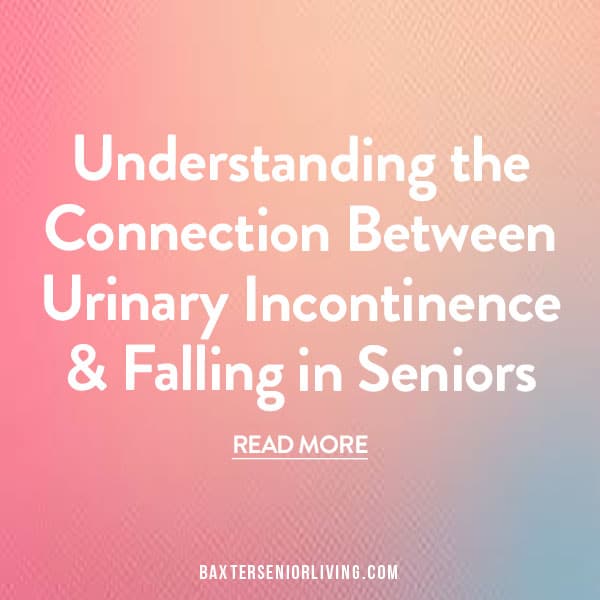Researchers have found a connection between certain urinary tract disorders and the risk of falling among older men and women. Chronic urinary tract infections, overactive bladder and prostate enlargement are three examples of disorders that can cause incontinence, or involuntary discharge of urine. Urinary tract issues sometimes are caused by the medication a person takes. Diuretics, for instance, can cause a more frequent and urgent need to urinate. Proactive measures can prevent falling when an elderly person has this type of problem.
The Connection
The connection between urinary tract issues and an increased risk of falling arises when these men and women suddenly need to use a bathroom in a hurry. They often have to get out of bed to do so. The urgency combined with reduced coordination from hurriedly getting up from sleep is a major risk factor. Waking up during the night because of a need to urinate is known as nocturia. This tends to become more common as people reach the age of 60.
Older individuals also may not be as strong as they used to be, especially if they have not been keeping physically active. An additional aspect may involve taking medication that has dizziness as a possible side effect. For example, some hypertension medications may cause blood pressure to drop too low when lying down. That can make the person feel dizzy and a bit faint upon standing, especially if doing so hurriedly.
Being Honest With the Doctor
Being honest about the problem with one’s doctor is imperative. Although many people feel so embarrassed that they do not want to talk about incontinence even to a healthcare provider, the doctor may be able to help. There may be effective strategies for reducing symptoms of the underlying health problem or a change in medication may be appropriate. In addition, medications are available that decrease symptoms of overactive bladder and help treat benign prostate enlargement.
Effective Safety Measures
Studies have found that although people tend to think that the shower is the most dangerous area of the bathroom in regard to falling, the area around the toilet is actually more hazardous for senior citizens. They may fall while trying to sit down or stand back up. If a urinary accident happens when they get into the bathroom, the floor now is wet and slippery, increasing the risk.
Having grab bars installed by the toilet is advisable. These devices help stabilize the person when sitting and getting back up.
Other safety measures also can help. Investing in a walker just to use at night for this purpose may be appropriate. Removing rugs from the bathroom floor can prevent tripping. A night light in the bathroom and another on the route to that room should be turned on before the person goes to bed. Some men and women get in the habit of using a small flashlight, but that means one hand is not free.
The person should be able to hold onto something sturdy when getting out of bed. That might be a very heavy nightstand or the home could have railings installed near the bed. Non-slip mats can be placed by the bed and by the toilet.
Decreasing Nocturia
Avoiding drinking any liquids after a certain time of day can significantly decrease nocturia. With a little practice, people learn how late they can drink something without causing problems. For most, this is four or five hours before going to bed. Caffeinated and alcoholic beverages especially should be avoided because they increase the need to urinate.
Concluding Thoughts
The importance of preventing falls in senior citizens cannot be stressed enough. This is an enormous risk factor for bone fractures, some of which can be serious. Taking proactive measures to prevent falling connected with incontinence is essential.
Living at Baxter Senior Living in Anchorage Alaska At Baxter Senior Living, we work to ensure that our community is an extension of your loved ones family. If you are at a place in your life that you need to discuss Anchorage Assisted Living, Anchorage Memory Care, or Anchorage Respite Care please reach out today. We are happy to help answer any questions. Contact a Baxter Senior Living Representative today! 907-865-3500

